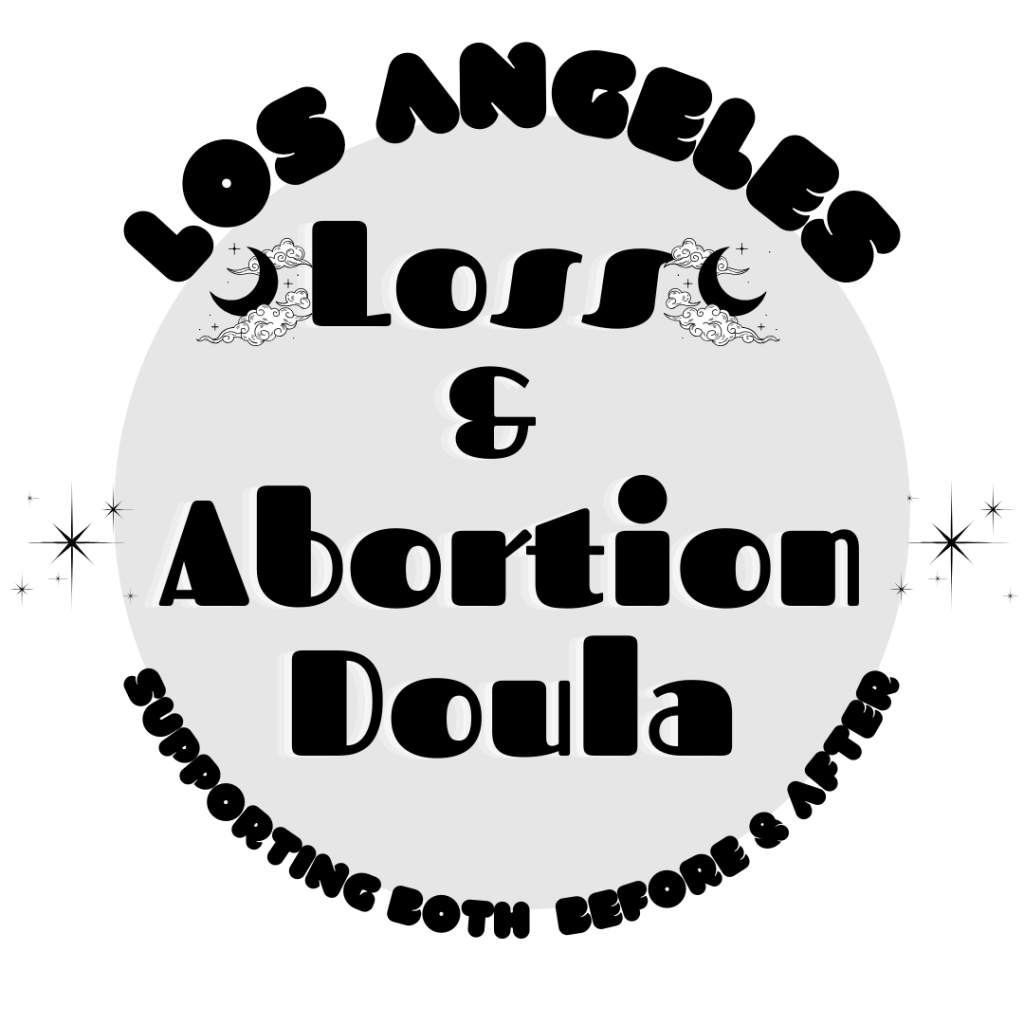Compassionate, Judgment-Free Care

After Your Abortion
Making the decision to have an abortion—whether for personal, medical, or unexpected reasons—can bring a mix of emotions. No matter how you feel, you deserve respectful, informed, and nonjudgmental support throughout the process. As a Los Angeles-based abortion doula, we offer care after your abortion to ensure you feel supported, heard, and cared for.
How We Can Support You:
Physical Preparation And Support
- Personalized guidance on what to expect with:
- Bleeding
- Cramping
- Hormonal Changes
- And More
- Supportive practices for pelvic rest and gentle movement during healing
- Nutritional suggestions to replenish and nourish your body post-abortion
- Daily wellness tips for infection prevention and overall physical care
- Temperature tracking education to help you monitor your healing at home
Medical Preparation & Provider Support
Compassionate guidance to help you feel confident and prepared when speaking with your healthcare provider—at every stage of healing.
Referral Support for Ongoing Medical Care:
If you don’t have a provider or want to switch, I can help connect you with OB/GYNs, clinics, and trauma-informed care providers in your area.
This service is available for up to one year after your abortion.
Medical Preparation
Questions to Ask Your Provider:
Curated suggestions tailored to each stage of recovery:
Immediate (Day 1–3): What’s normal vs. what requires follow-up
Early Recovery (Week 1–2): Hormonal shifts, sleep, and discharge
Ongoing (Week 3–12): Return of menstruation, discomfort, fertility
Extended Support (Up to 1 Year): Lingering symptoms, emotional shifts, or readiness for future pregnancies or contraception
Symptom Tracking:
Learn how to log relevant details about your bleeding, discharge, energy levels, appetite, mood, and more—so you can speak with clarity and advocate for your needs.
Contraception Counseling (If Applicable):
Basic education on options, timing, and how they may interact with your recovery or future plans.
Advocacy & Communication Support:
Coaching on how to express your concerns clearly, ask follow-up questions, and establish a trusting relationship with your provider.
- Help preparing for provider appointments with:
- Questions to ask at different stages (immediate, 1–2 weeks, 3+ weeks)
- Notes on symptoms to track and share
- Information on post-abortion contraception options (if applicable)
- Advocacy support to help you communicate clearly with your healthcare team
- Resources if you are seeking a new provider for follow-up care
Emotional & Mental Health Support
- Emotional check-ins to hold space for feelings that arise immediately or months later
- Optional journaling prompts and simple self-reflection practices
- Introduction to somatic (body-based) support tools for nervous system regulation
Referrals & Continued Care
- Warm referrals to:
- Licensed therapists and counselors
- Local and online support groups
- Holistic wellness providers such as bodyworkers, acupuncturists, and energy healers
- Educational resources for reproductive transitions
- Nutritional and herbal support for recovery
- Emotional check-ins to process feelings, whether immediate or delayed
- Referrals to;
- Counseling
- Support Groups
- Holistic Wellness Services
- And More
Family Planning, Life Goals, and Future Support
- Self-love guidance and building a foundation of self-worth
- Guidance on contraceptive options for future reproductive planning
- Support navigating future fertility choices with respect to your personal goals
- Life goal setting and personal growth planning to help envision your next steps
- Reviewing signs of a healthy relationship to support emotional well-being
- Financial and career planning exercises (thought mapping for goal clarity)
- Introduction to mental health exercises for emotional resilience (reflective writing and grounding exercises)
- Referrals to trusted reproductive health, financial, and mental health services to ensure you have a strong network of ongoing care
Top 5 Reasons Women Get Abortions
Abortion is a deeply personal decision, often made after careful consideration. The reasons are complex and often overlap. Below are five of the most commonly cited reasons, supported by national research:
1. Financial Insecurity
Many women say they cannot afford to have a child or another child at this time. This includes concerns about job stability, housing, childcare costs, and providing basic needs. Financial hardship remains one of the most frequently reported reasons.
Source: Guttmacher Institute
https://www.guttmacher.org/journals/psrh/2005/reasons-us-women-have-abortions-quantitative-and-qualitative-perspectives
2. Poor Timing or Life Circumstances
Some women feel they are not in the right phase of life to have a baby—due to school, career development, or emotional readiness. The pregnancy may come at a time when they are unprepared to take on the responsibilities of parenthood.
Source: Guttmacher Policy Review
https://www.guttmacher.org/gpr/2005/08/understanding-why-women-seek-abortions-united-states
3. Relationship Issues or Lack of Support
The pregnancy may occur in the context of an unstable, unhealthy, or absent relationship. Many women report that their partner is unsupportive or that they do not want to raise a child alone.
Source: Guttmacher Institute
https://www.guttmacher.org/fact-sheet/induced-abortion-united-states
4. Already Parenting and Feeling Overextended
More than half of women who have abortions are already mothers. They often say they need to prioritize the children they already have and do not feel capable of caring for another child at the time.
Source: Kaiser Family Foundation (KFF)
https://www.kff.org/womens-health-policy/fact-sheet/abortion-in-the-u-s-what-do-the-data-say/
5. Health Concerns
Some women seek abortion due to risks to their physical or mental health, or because of a diagnosis that the fetus has a serious medical condition. These decisions are often made in consultation with a healthcare provider.
Source: American College of Obstetricians and Gynecologists (ACOG)
https://www.acog.org/advocacy/facts-are-important/abortion-is-health-care
Your Experience is Valid
Every abortion experience is unique—some bring relief, some bring grief, and some carry complex emotions. However you feel, you deserve care and support without shame or judgment.
If you need a compassionate presence during this time or as you plan for your future, I am here for you. Reach out to learn how I can support you in a way that honors your experience, your growth, and your dreams.

